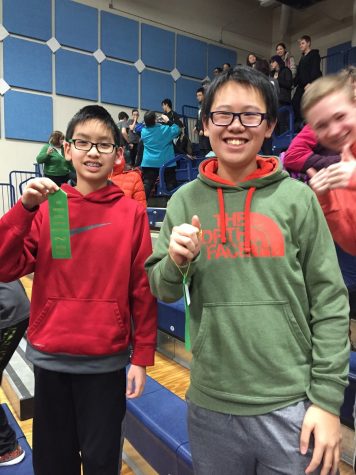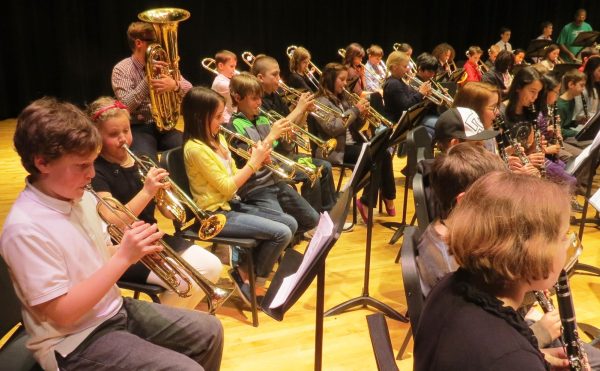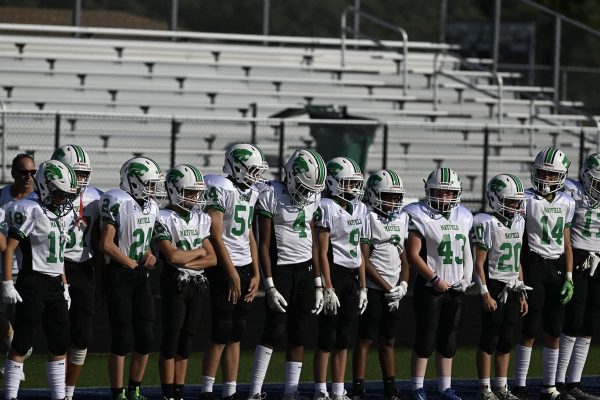Science Olympiad: A New Approach to the World of Science

Science.
Perhaps test tubes filled with questionable substances come to mind, or miniscule atoms composing everyday objects. However, the world of science is not only explosions and microscopy but entails several topics often overlooked as scientific as well. Science Olympiad, an annual nation-wide competition, offers children and teens a chance to explore new facets of science, engaging them in physics, chemistry, astronomy, geology, medicine and countless other fields through fun, interactive events.
What starts at the regional level grows into states and finally the national level. According to the Science Olympiad website, there are about 7,600 teams of up to 15 kids from all 50 states. This year, Mayfield’s two teams are composed of 35 sixth, seventh, and eighth graders. Typically, each person competes in three events. Each event’s test can differ depending on the category of the event. For example, for the life, Earth, and space events, typically the format is just a written test. However, for the engineering events, the task is to build a structure that fulfills the task as best possible prior to the competition, and at the competition site, the structure is tested. Some events, such as optics, require a unique test. In the optics event, the team must study the laws of physics through finding a way to point a laser and have it hit as many mirrors as possible. They must analyze the structure of light and its particle action.
Each competition lasts a full day, typically starting at 8:00 AM and ending at around 4:00 PM. Each event has a designated 50-minute block for the student to test. At invitationals, top eight receive awards: the top three earning a medal and the rest taking home a ribbon. At regionals, only the top five receive awards with only the top three claiming their medal.
At the Kenston invitational on January 14, Alvin Cai and Ethan Fong took home an eighth-place ribbon in Write It Do It. Alvin Cai, a two-year participant in Science Olympiad says he wanted to join “because it offers such a wide variety of activities.” When asked what his favorite part and event is and why, he replied, “Some of them aren’t what you think is related to science. Like Write It Do It, Hovercraft, and Food Science. I like Food Science because I get to burn stuff…yeah I’m a pyromaniac.”

This year, Mayfield plans on attending two more Science Olympiad competitions:the Mentor Invitational on February 11 and Regionals at Case Western Reserve University on February 25.
So why start this program? Well, the National Governors Association conducted a longitudinal study on the effects of the Science Olympiad program in 2001-2002. The conclusion of the study’s article stated, “Based on all findings across years, we strongly suggest use of the Science Olympiad collaboration-competition model at middle school and high school levels to enhance student motivation to learn and apply science, engineering and mathematics concepts and skills” (8). Not only that, but the study shows that after the Science Olympiad season, “Between 17% and 50% of students across years claimed that participation resulted in improved science grades” (6). This experience was not only fun, challenging, motivating, and educational, but it also gave students a new perspective and passion for the world of science.
What began in 1984 grew into an annual nation-wide competition. This year, there are 23 events, relating to the life sciences, physics, chemistry, Earth and space sciences, and technology and engineering. A list of the 2017 Science Olympiad events is as follows:
Life, Personal & Social Science
The world of science includes many things-some you wouldn’t consider for a second. Pastries, forensics, disease and lasers all relate to science in one way or another. So if exploring these new facets of science sounds intriguing, Science Olympiad is available to everyone every year, however tryouts may be required. Go on, explore the world of science!






